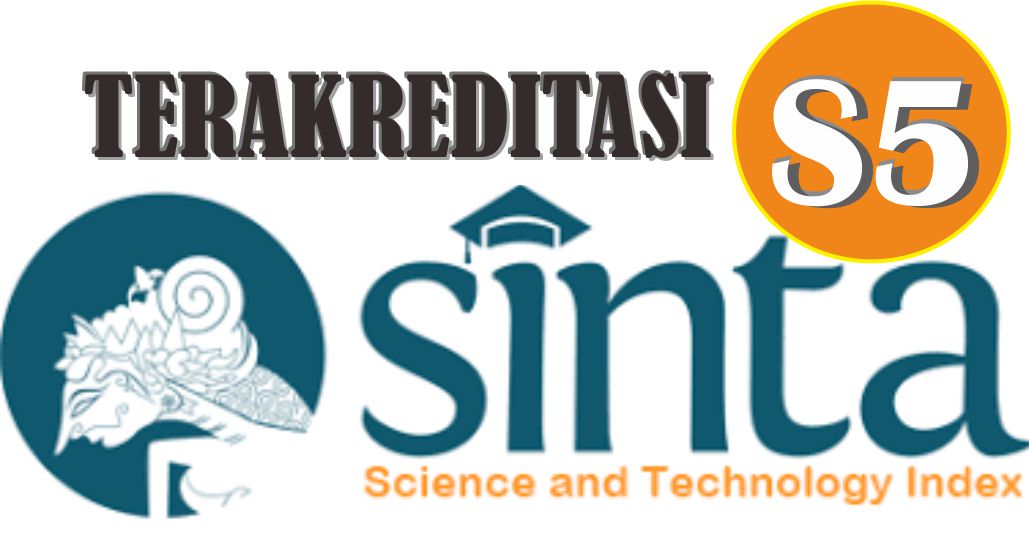Lingkungan Pendidikan Islam Dalam Perspektif Al Qur’an
Abstract
Human caliph, has a big and important responsibility in protecting and preserving everything on this earth. To be able to create humans as caliphs or leaders who are fathonah, mandate, siddiq for tabligh, of course it requires knowledge and education, especially those based on the Qur'an and Hadiths, it must be applied from an early age.
Feathered birds gather together. Birds with the same feathers will gather together. Shows how the importance of the environment affects a human being. Nature versus nurture is a fun thing that is often done by psychologists, educationists, sociologists and anyone with knowledge related to humans. Will a human being know more about his seeds or heredity, namely nature, or care, from the environment, education, family upbringing and government? The two terms above indicate the role that the environment affects on an individual's personality, especially the educational environment.
The Islamic education environment in the perspective of the Qur'an can be a solution to form perfect human resources, which are beneficial to Islam and the nation. Like the adage, "Baldatun toyyibatun wa robun ghofur" in a good country, Allah SWT. will give forgiveness. Human resources formed from a good environment and country will be the basis for forgiveness and compassion from Allah SWT.
In order to understand more clearly about what and how the nature of the educational environment is extracted from the verses of the al-Qur'an, it is necessary to conduct an in-depth study of the educational environment according to the al-Qur'an.
References
A, Febriani N. Ekologi Berawawasan Gender dalam Perspektif Al-Quran. Bandung: Mizan, 2014.
Ali, Maulana Muhammad. Din al-Islam. Jakarta: PT. Ikhtiar Baru, 1999.
Al-Rasyidin. Falsafah Pendidikan Islam. Bandung: Citapustaka Media Perintis, 2008.
Anis, Ibrahim, dan all, ed. al-Mu’jam al-Wasith. Kairo, 1972.
Arifin, H.M. Kapita Selekta Pendidikan Islam. Jakarta: PT Bumi Aksara, 2003.
Arifin, M. Kapita Selekta Pendidikan; Islam dan Umum. Jakarta: Bumi Aksara, 1995.
Baqi, M. Fuad Abdul. Mu’jam Mufahras lil al-Faz al-Qur’an. Bairut: Dar al-Fikr, 1992.
Daradjat, Zakiah. Ilmu Pendidikan Islam. Jakarta: Bumi Aksara, 2009.
———. Pendidikan Islam dalam Keluarga dan Sekolah. Jakarta: Ruhama, 1994.
Ghazali, Bahri. Pesantren Berwawasan Lingkungan. Jakarta: Prasasti, 2002.
Hasbullah. Kapita Selekta Pendidikan Islam. Jakarta: Rajawali pers, 1996.
Ismail ibnu Katsir. Tafsir al-Qur’an al-Azim, Jilid 2. Beirut: Dar al-Kutub al-Ilmiyyah, 1999.
Jamaluddin, dan Abdullah Aly. Kapita Selekta Pendidikan Islam. Bandung: Pustaka Setia, 1999.
Luth, Thohir. M. Natsir, dakwah dan pemikirannya. Jakarta: Gema Insani Press, 1999.
Mahalli, Imam Jalaluddin al-, dan Imam Jalaluddin al-Syuyuti. Tafsir Jalalain, Jilid 2. Bandung: Baru Algesindo, 2006.
Mulhakam, Abdul Munir. Menggagas Pesantren Masa Depan Geliat Suara SantriUntuk Indonesia Baru. Banten: Qirtas, 2003.
Muliawan, Jasa Ungguh. Pendidikan Islam Integratif. Cet. I. Yogyakarta: Pustaka Belajar, 2005.
Mulyasa, E. Menjadi Kepala Sekolah Profesional. Bandung: Remaja Rosdakarya, 2009.
Nasional, Departemen Pendidikan. Kamus Besar Bahasa Indonesia. Jakarta: Balai Pustaka, 1996.
Nata, Abuddin. Ilmu Pendidikan Islam. Jakarta: Kencana, 2010.
———. Ilmu Pendidikan Islam dengan Pendekatan Multi Disipliner. Jakarta: Rajawali Pers, 2010.
Nata, Abudin. Filsafat Pendidikan Islam. Cet. I. Jakarta: Gaya Media Pratama, 2005.
Nawawi, dan H. Hadari. Pendidikan dalam Islam. Surabaya: Al-Ikhlas, 1993.
Nizar, Samsul, dan Zainal Effendi Hasibuan. Hadis Tarbawi. Jakarta: Kalam Mulia, 2011.
Qutub, Sayyid. Tafsir fi Zilali al-Qur’an, Juz 1. Mekkah: Dar al-Ilmiyyah, 1986.
Santoso, Lukman. Ibu-ibu Pencetak Orang-orang Hebat. Yogyakarta: Buku BIru, 2011.
Shihab, Quraisy. Tafsir alQur’an al-Kariem; Tafsir atas Surah-surah Pendek Berdasarkan Urutan Turunnya Wahyu. Bandung: Pustaka Hidayah, 1999.
———. Wawasan al-Qur’an; Tafsir Maudhu’i atas Pelbagai Persoalan Umat. Bandung: Mizan, 1996.
Shofwan, Arif Muzayin. “Metode Belajar Menurut Imam Zarnuji: Telaah Kitab Ta’lim Al Muta’alim.” BRILIANT: Jurnal Riset dan Konseptua 2, no. 4 (November 2017).
Suwarno, Wiji. Dasar-dasar Ilmu Pendidikan. Yokyakarta: Ar-Ruzz Media, 2006.
T., Lickona. Education For Character: Mendidik Untuk Membentuk Karakter. Jakarta: Bumi Aksara, 2013.
Tamrin, M. Isnando. “Pendidikan Non Formal Berbasis Masjid Sebagai Bentuk Tanggungjawab Umat Dalam Perspektif Pendidikan Seumur Hidup.” Jurnal MENARA Ilmu XII, no. 79 (Januari 2018).
Tim Penyusun. Undang-Undang Republik Indonesia Nomor 20 Tahun 2003 Tentang Sisdiknas, Bab I, Pasal 1. Jakarta: Direktorat Jenderal Pendidikan Islam, 2006.
w., Soemanto. Psikologi Pendidikan: Landasan Kerja Pemimpin Pendidikan. Jakarta: Rineka Cipta, 2003.
Zuhairini, dan dkk. Sejarah Pendidikan Islam. Jakarta: Bumi Aksara bekerja sama dengan Direktor Jendral Pembinaan Kelembagaan Agama Islam Departemen Agama, 1994.
Zulhammi. “Lingkungan Pendidikan Menurut AL-Qur’an.” Forum Paedagogik VI, no. 01 (Januari 2014).
This journal provides immediate open access to its content on the principle that making research freely available to the public supports a greater global exchange of knowledge. By virtue of their appearance in this is open access jurnal, articles are free to use after initial publication under a Creative Commons Atribution 4.0 International Licenses.

This work is licensed under a Creative Commons Attribution 4.0 International License.











